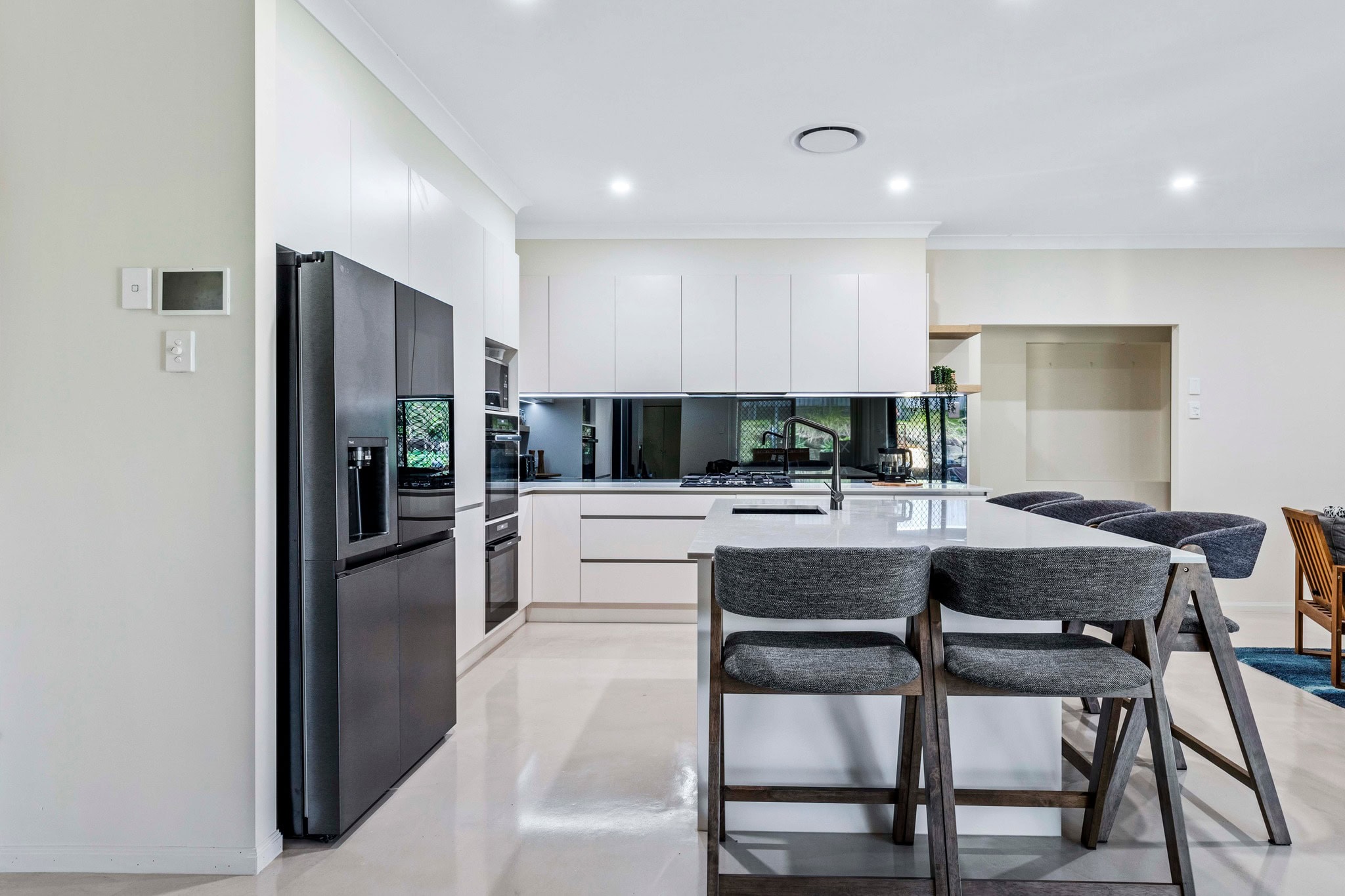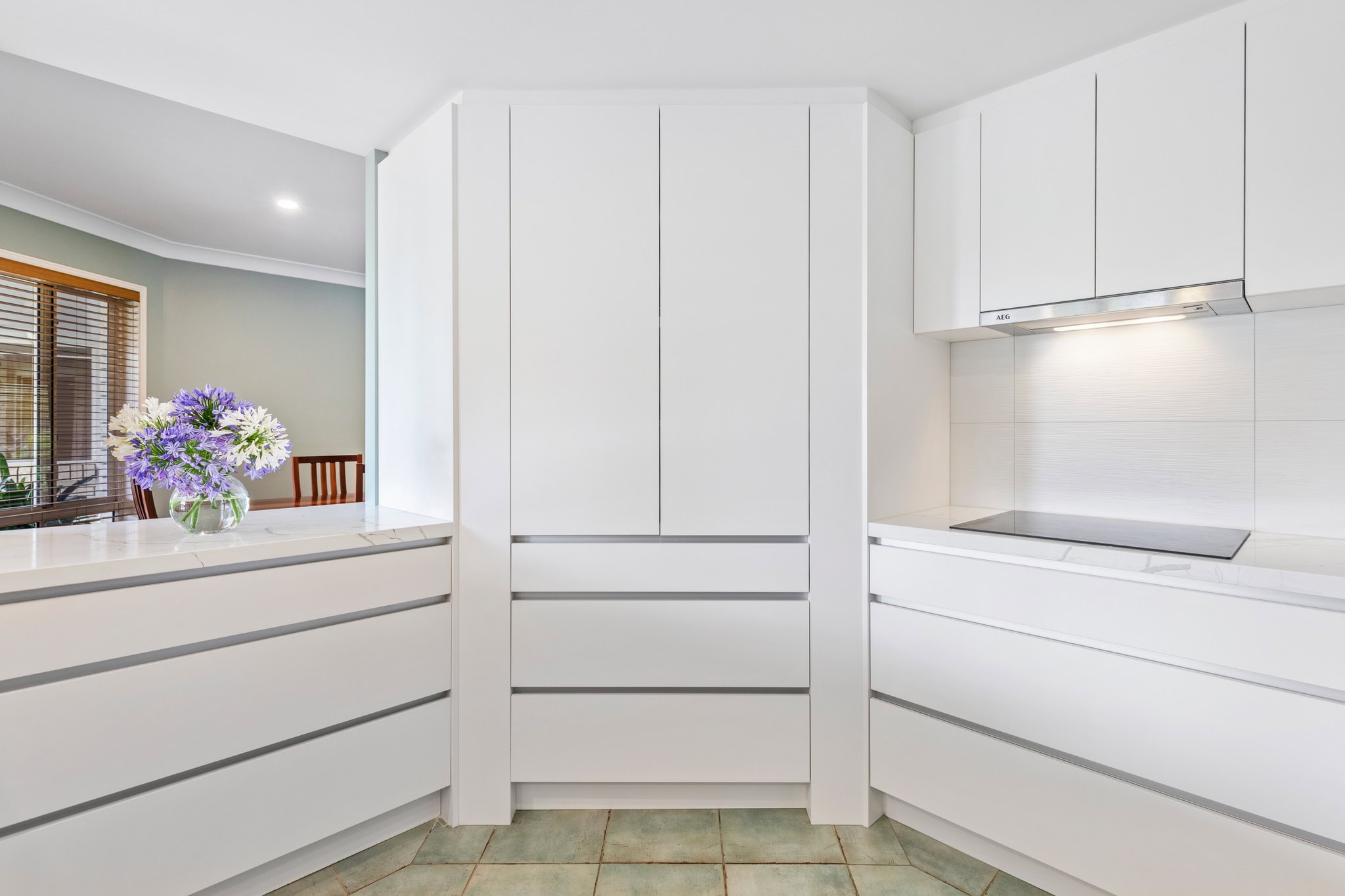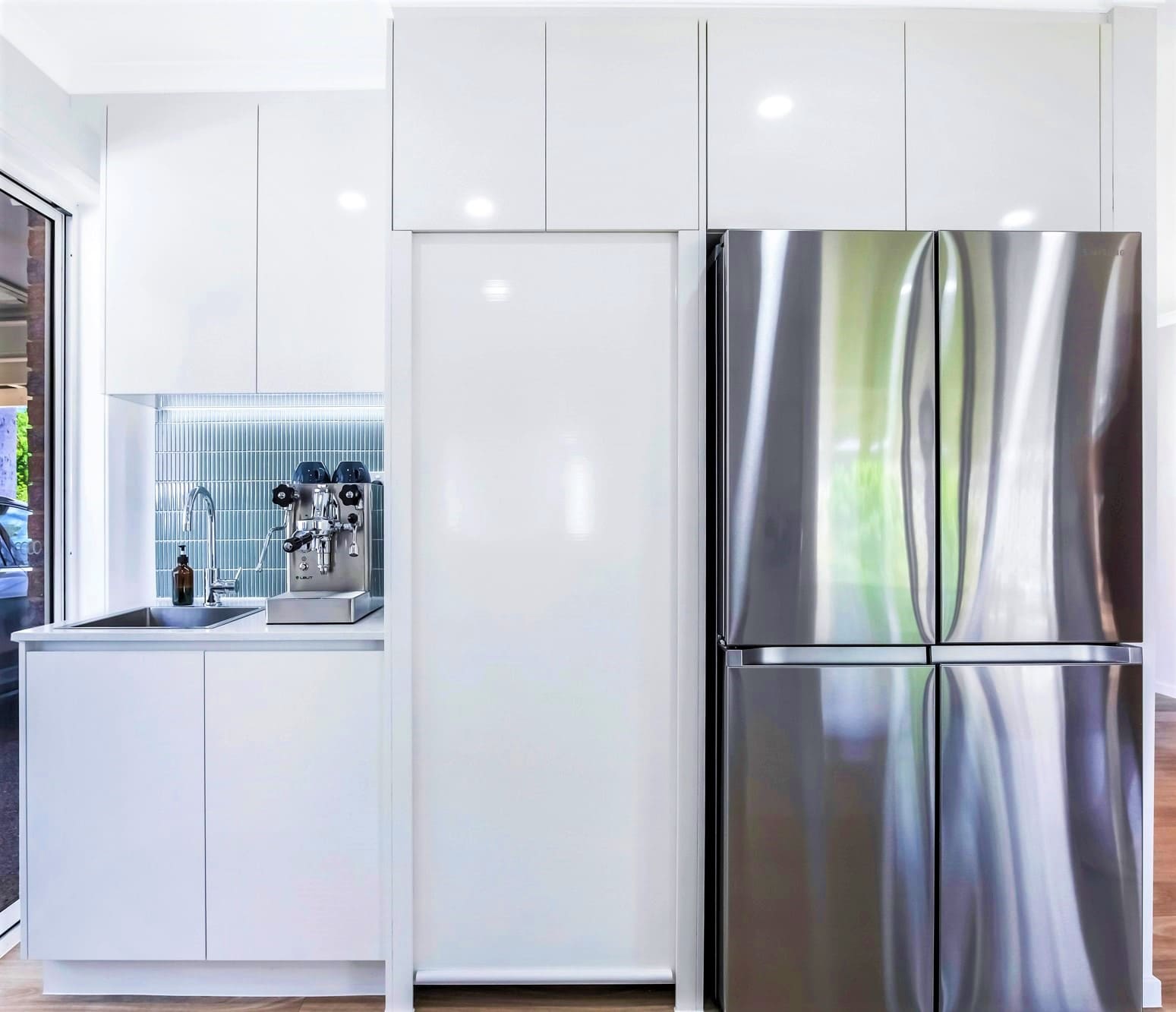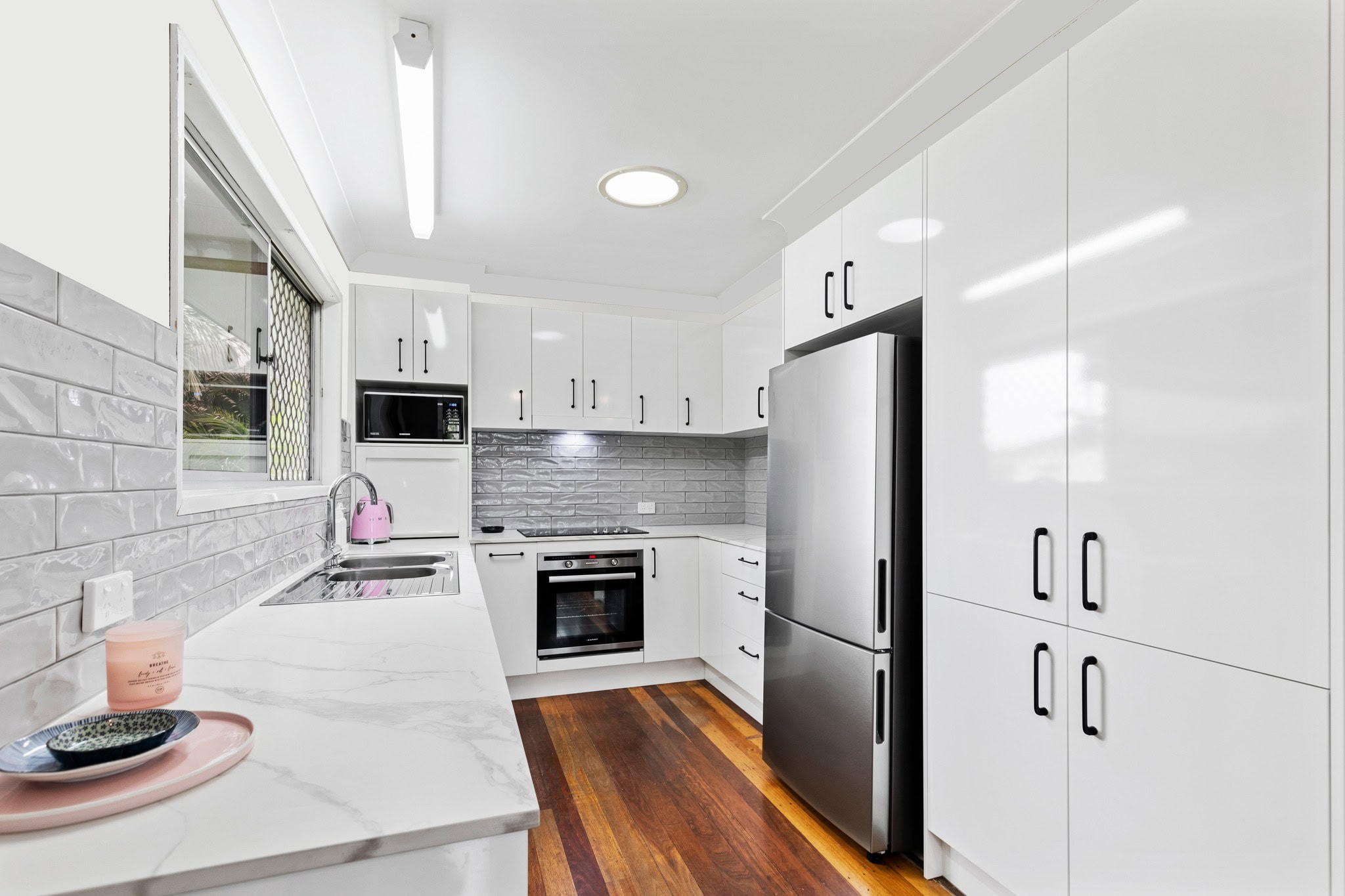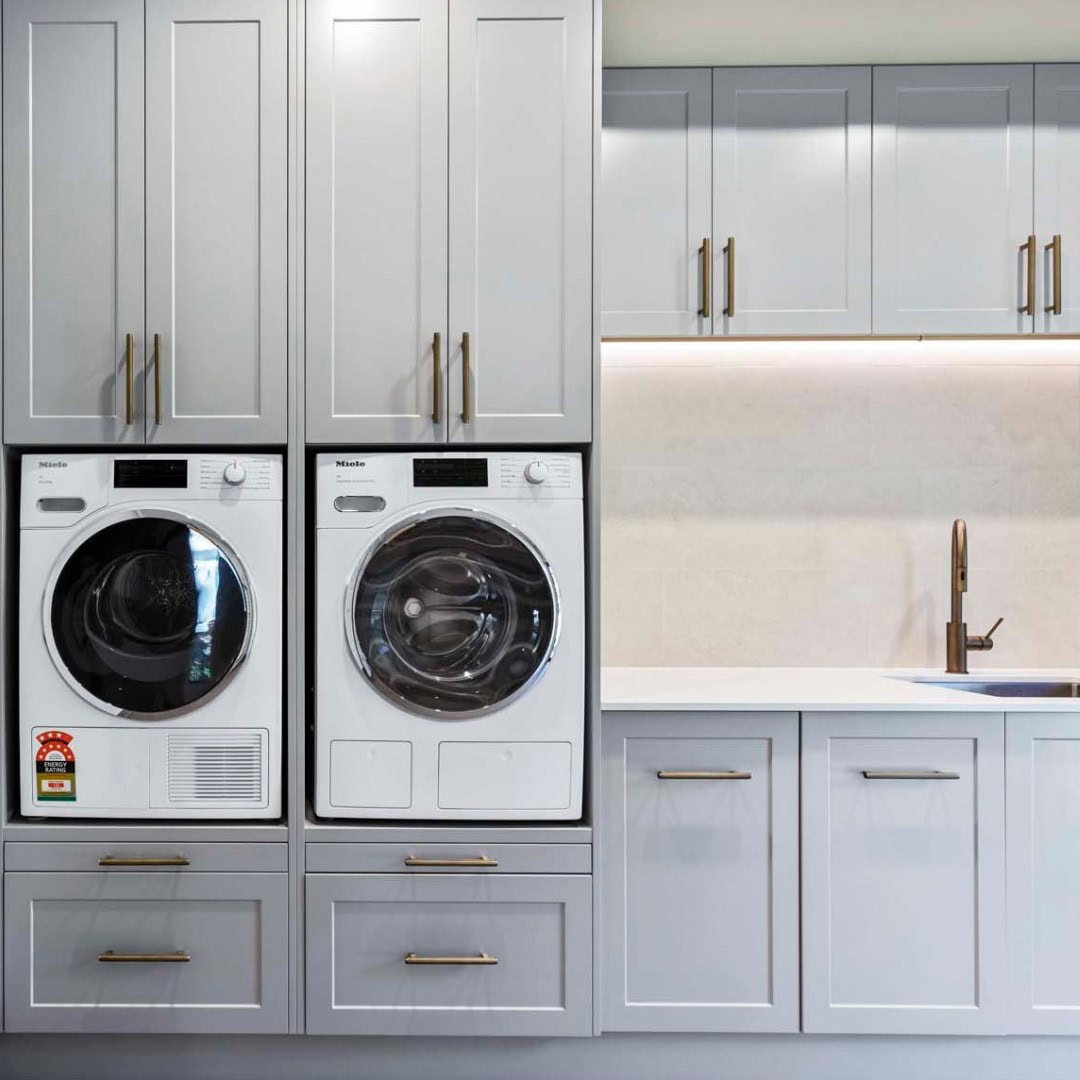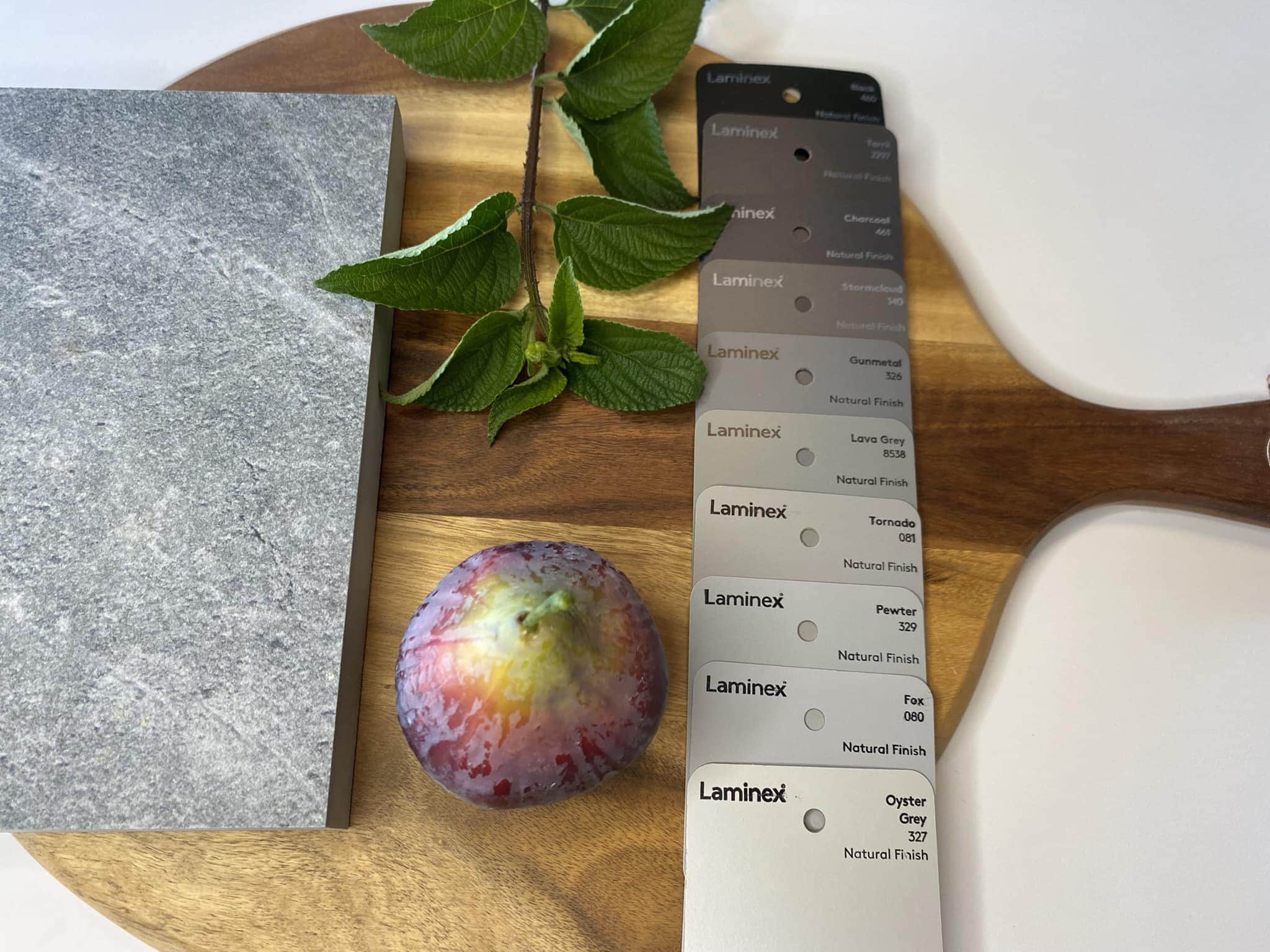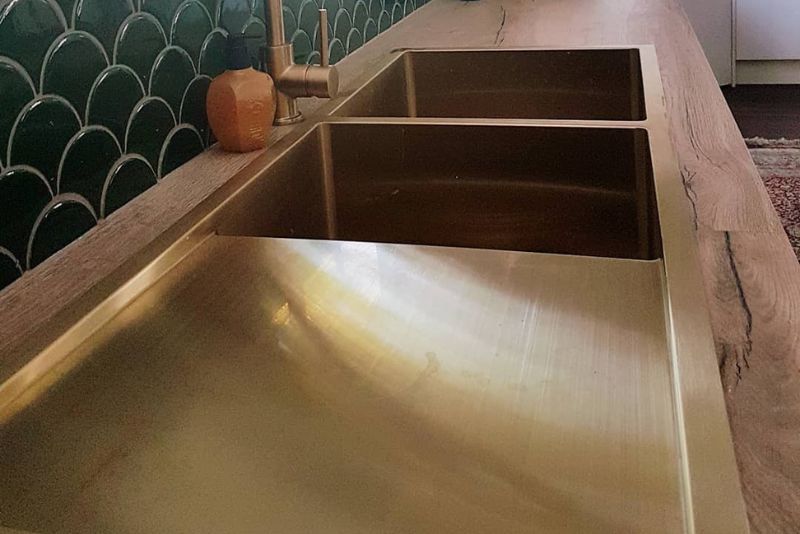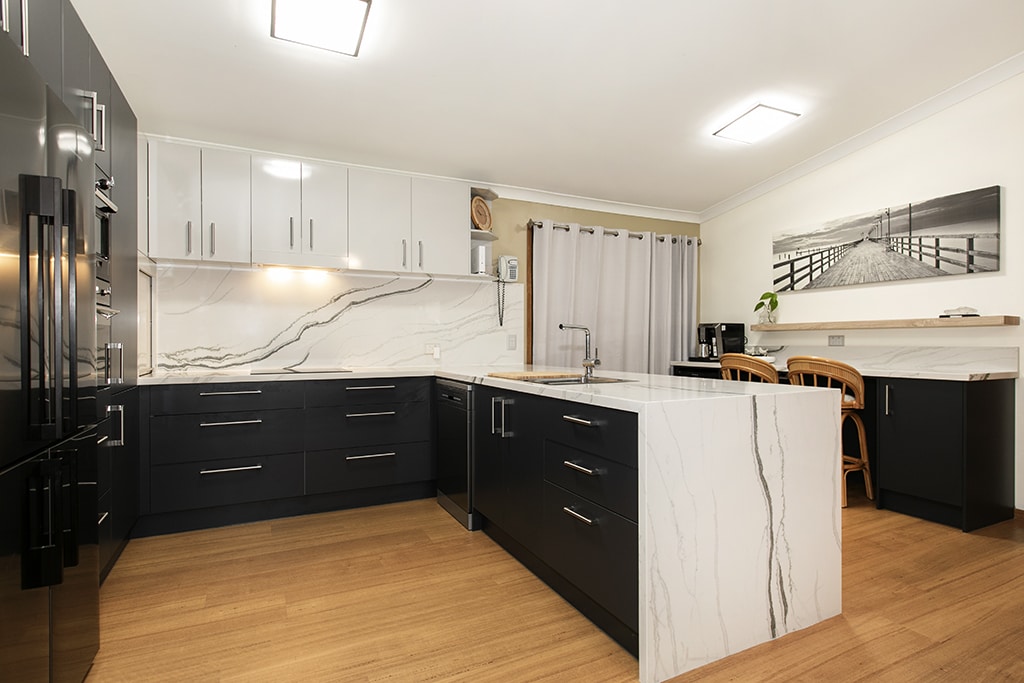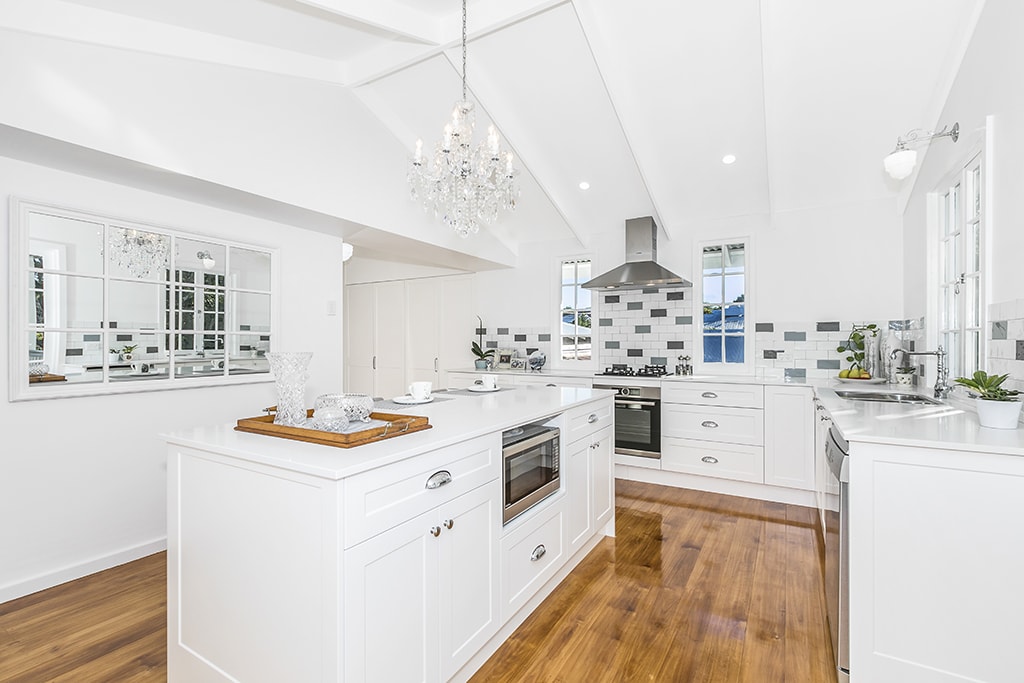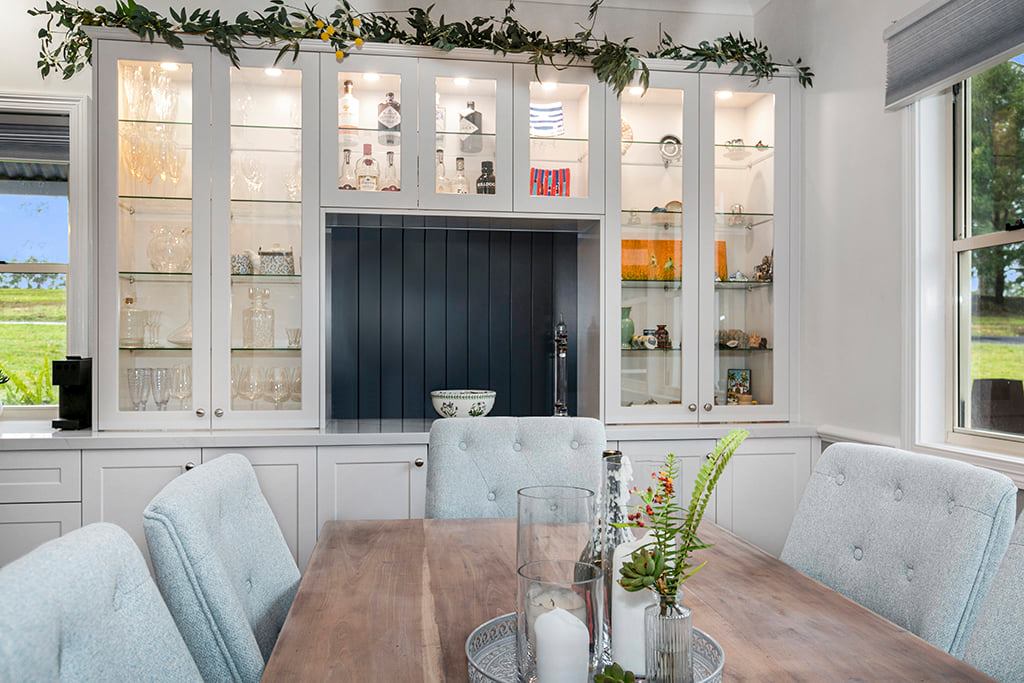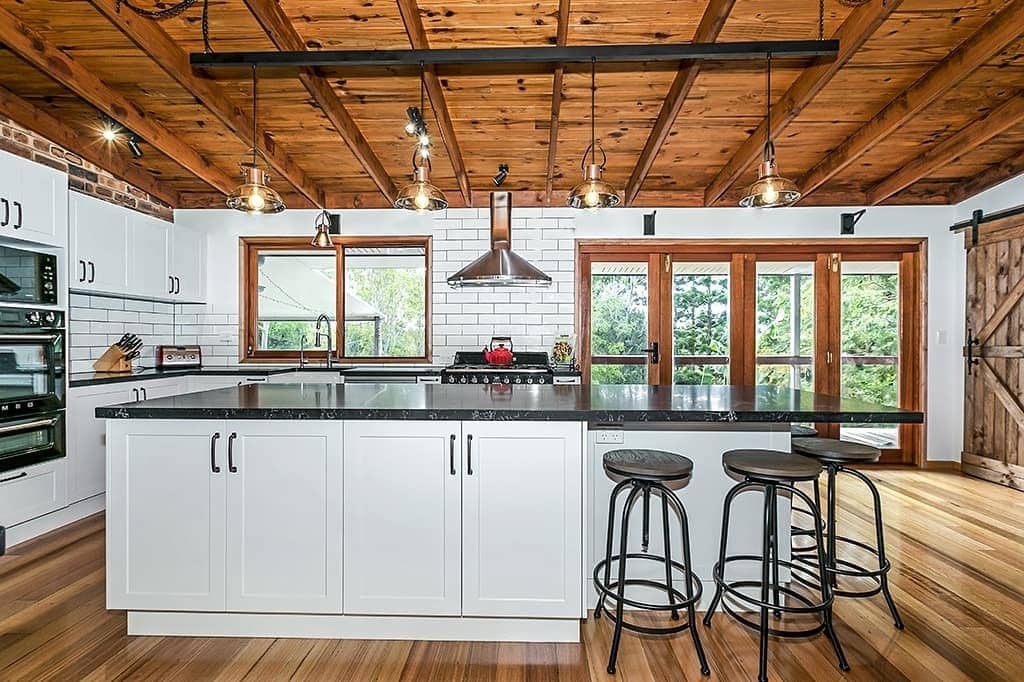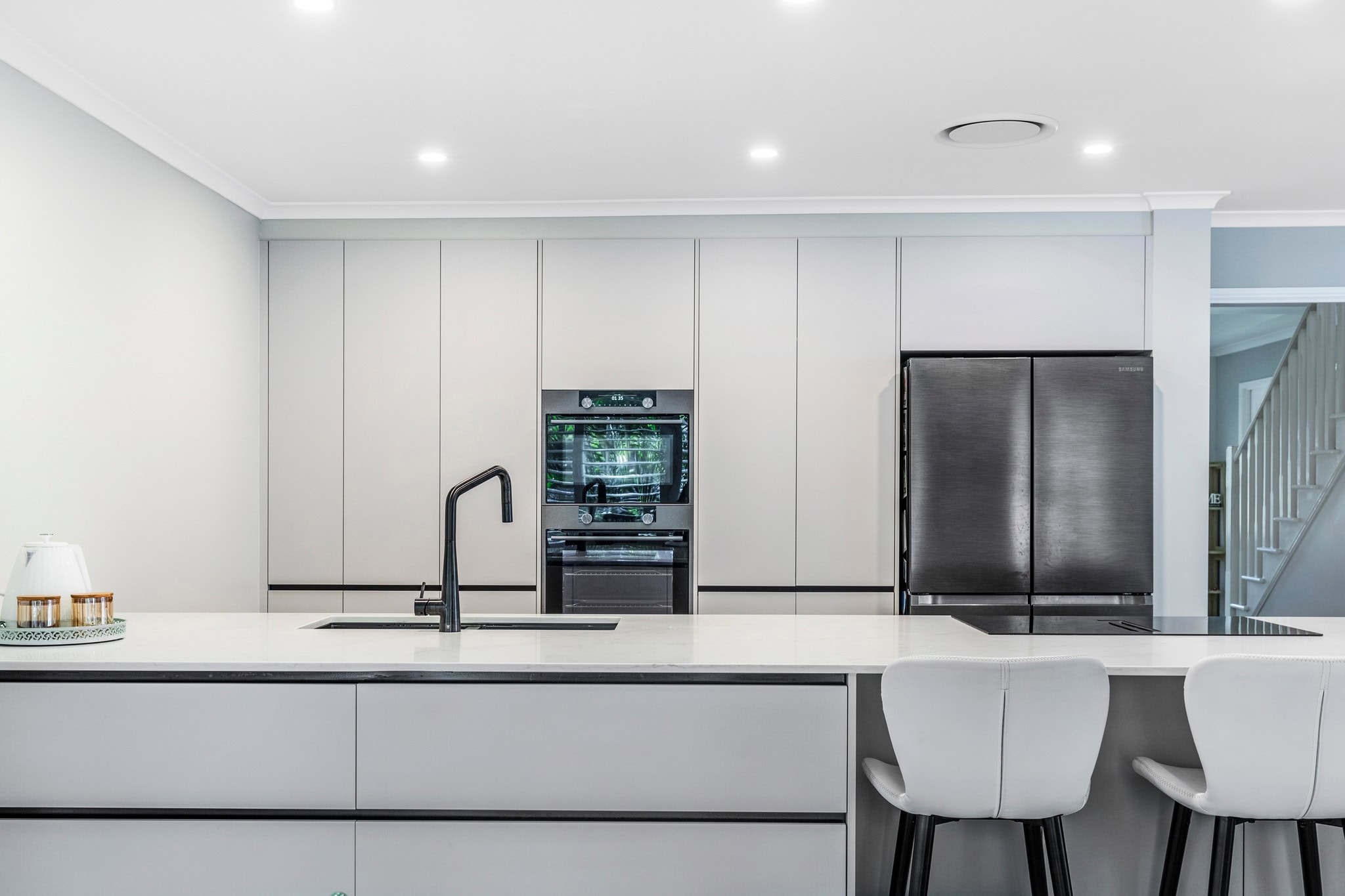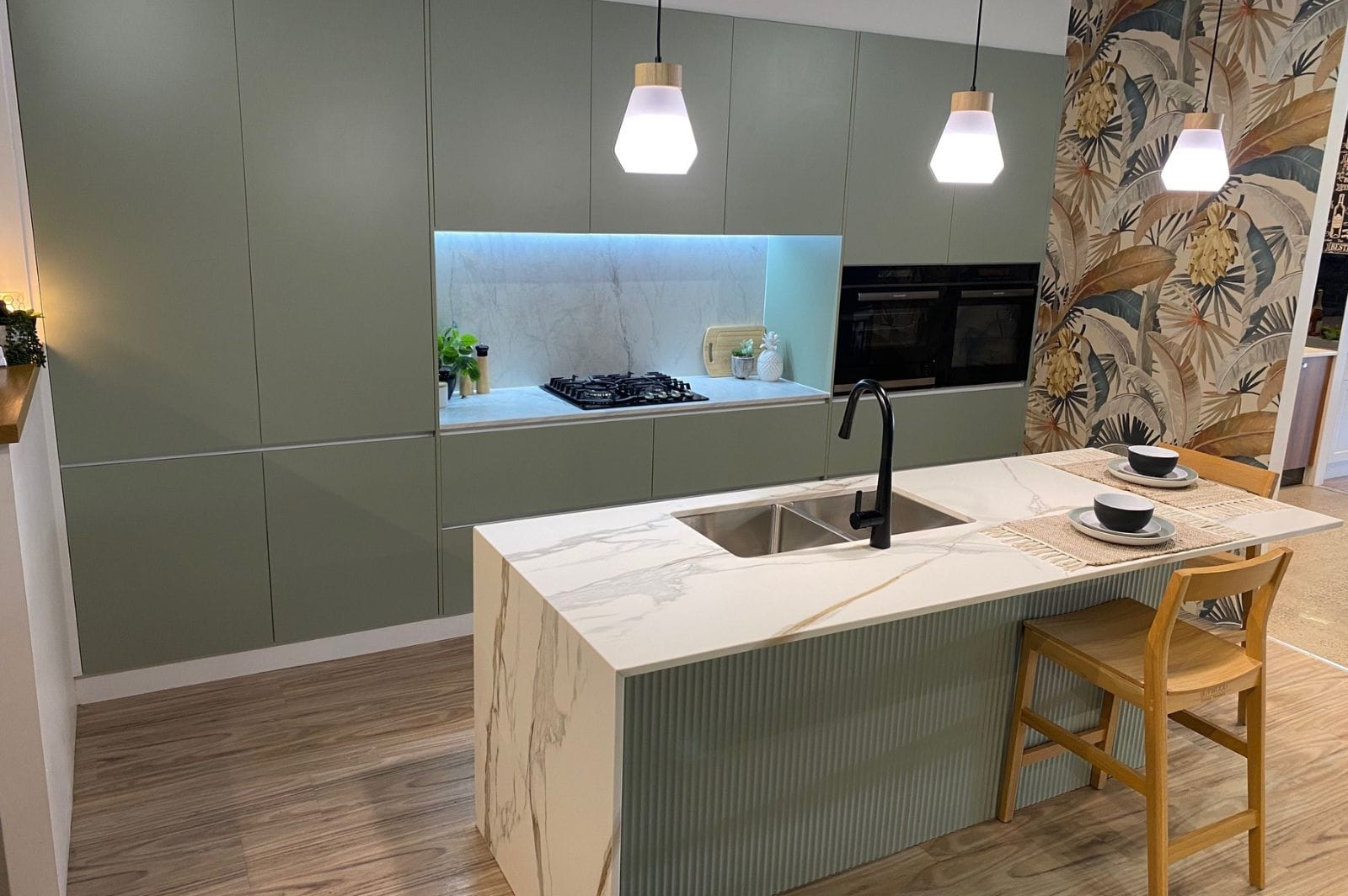What to Consider for Kitchen Lighting
Whether you're building a home from scratch or undertaking a kitchen renovation, it's crucial to consider your lighting. The right light makes food preparation a breeze and sets a sociable mood for entertaining guests at the dinner table.
But with so many factors to sift through, it can be tough to wrap your head around the nitty-gritty details. That's why we've put together this in-depth guide on what to consider for kitchen lighting.
How to Choose Kitchen Lighting
Suitable illumination is critical for both function and form. Key workspaces need bright task lighting to facilitate easy use. Entertainment areas, such as the dining table in an open-plan kitchen, can use warm, low lighting to create a cosy informal atmosphere.
However, as these areas are rarely more than a few metres apart, you need to get strategic about your lighting types.
Types of Kitchen Lighting
A wide range of lighting types is suitable for various areas of the kitchen.
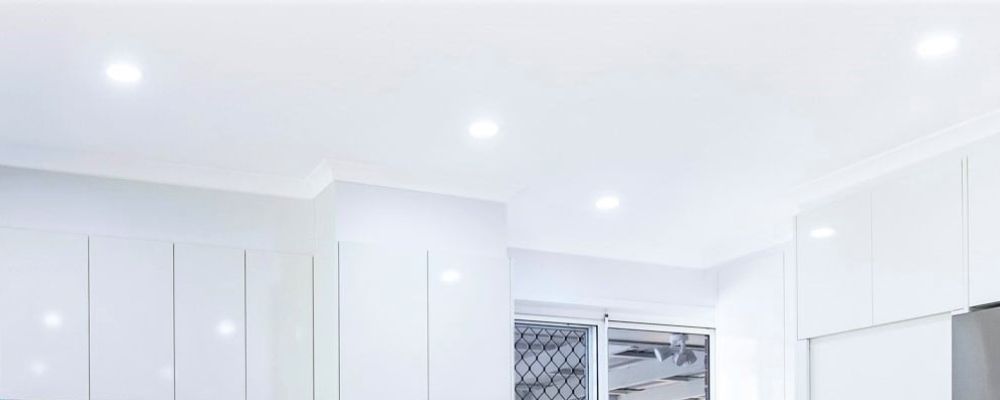
Ambient Lighting
Ambient lighting, or general lighting, refers to background illumination. Think of ambient lighting as the base layer—or the foundation—of your overarching lighting regime. The idea is to create a uniform level of light throughout the entire kitchen. From this foundation, you can add other lighting elements, such as task or accent lighting.
The strength of ambient light should vary depending on how much natural light enters through your windows and doors. If your kitchen is naturally well-lit, there's no need to go overboard on the artificial ambient lighting.
However, you still need to ensure you've got sufficient ambient lighting at night. After all, most Australian families do the bulk of their cooking and communal dining in the evening.
Popular ambient surface lighting options include ceiling mounted (flush or semi-flush), wall-mounted (sconce), track mounted, or pendant lights. Surface mounted lighting products have many of the same elements as recessed products (downlights) – the main difference is they're mounted onto the surface of the ceiling or wall, rather than housed within it.
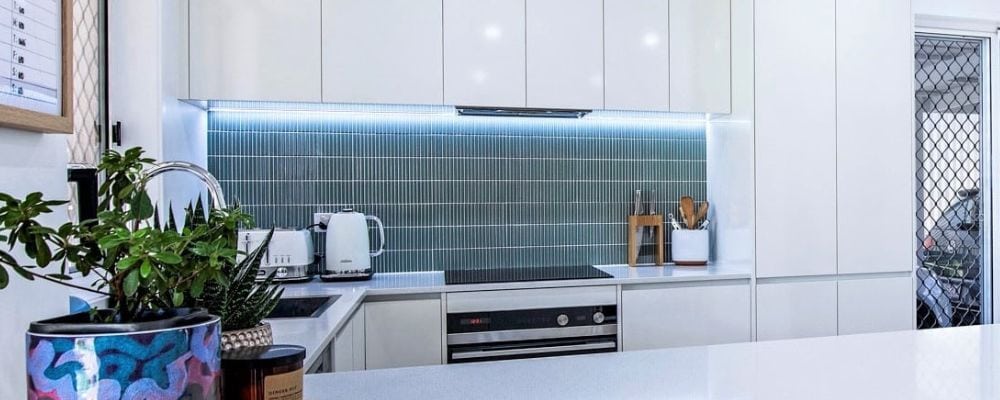
Practical Task Lighting
Practical task lighting (or just task lighting) is where function trumps form. This specialised lighting type illuminates key areas of the kitchen to help you perform specific food prep-related tasks.
The most common spots to benefit from task lighting include the counters, the rangehood or cooktop, and the kitchen sink. Whether dicing tomatoes or taking pasta off the boil, you need a source of strong, uninterrupted light to optimise safety and efficiency.
To reduce shadows and maintain adequate illumination, it's best to use linear white LED lights placed between 45 and 60cm from the wall. You could consider using pendant lights over your kitchen islands, but aim for a model that lets you dim them once you're done. That way, you can switch into ambient mode at the press of a button.
Some modern appliances, such as rangehoods, already have task lighting built into the system—no need to install anything extra in this case.
Whatever style you go for, aim for a cool white light with a Kelvin rating between 3,000 to 4,500. Warm or dim lighting isn't suitable for a high-use work area.
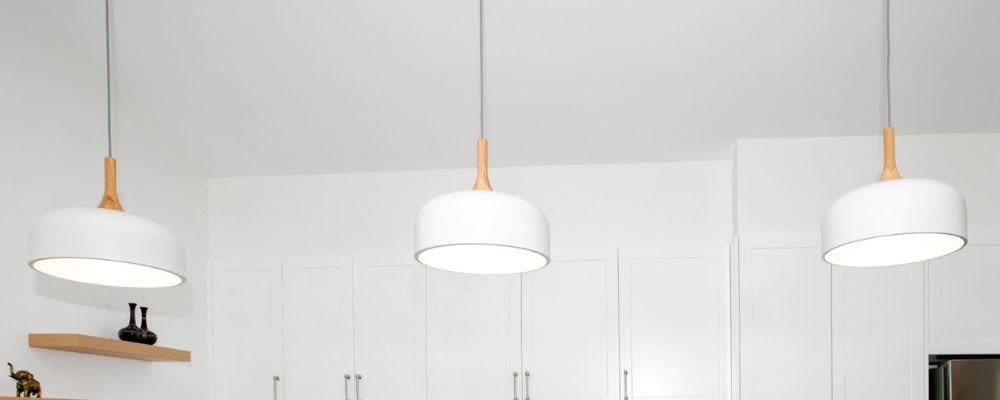
Accent Lighting
Also known as decorative lighting, accent lighting adds visual interest, highlights specific design features, and enhances the atmosphere of the space. It won't make navigating the kitchen any easier; accent lighting is all about aesthetics.
Coloured LEDs are common accent lighting choices as they emit a smooth, warm glow. Many modern LEDs let you change colour through a handy remote control.
Low-hanging pendant lights above breakfast bars and kitchen islands can serve as both accent lighting and task lighting. Aim for three or more pendants spaced 50 to 80 cm apart, or group them in a cluster for a unique look.
Striplights are another decorative favourite. Place them under your kitchen island or within select cabinets to accentuate the room's most appealing features.
Combining Different Lighting Types
It's crucial to ensure your ambient, task, and accent lights can operate independently. Changing between each lighting type lets you alter the atmosphere of your kitchen in an instant—you can go from cooking mode to dining at the flick of a switch.
There's no point in having moody custom-designed accent lights if they're always overpowered by ultra-bright task lighting.
In addition to individual switches, dimmer lights can go a long way towards altering the mood. Crank them up while cooking up a storm, or tone them down for a romantic, dimly-lit meal. Ambient, task, and accent lighting can all benefit from the classic dimmer switch.
Kitchen Lighting Fixture Types
Feel free to add all three of the main fixture types to your kitchen:
- Recessed lights (downlights) for ambient and task lighting
- Pendant lights for task and accent lighting (preferably with a dimmer to switch between both modes)
- LED striplights to accent lighting
While it's not essential to match all your fixtures, at least ensure they follow a theme. Whether it be a shiny bronze or coppery finish or an understated pewter or aged zinc texture, a uniform finish helps tie the kitchen together.
Transform Your Kitchen with MKN
Ready to spruce up your kitchen with custom-designed lights?
MKN offers a broad range of stylish illumination solutions for your kitchen, from ambient to task and accent lights. With over 20 years of industry experience, our expert artisans can custom-design the perfect kitchen lights for your property.
Get in touch with us today to see how we can transform your kitchen.
Get to know our designers in our article Top 5 Things to Consider For a Kitchen Renovation


